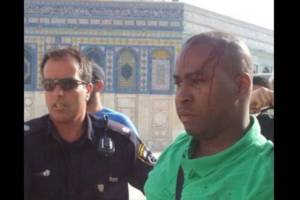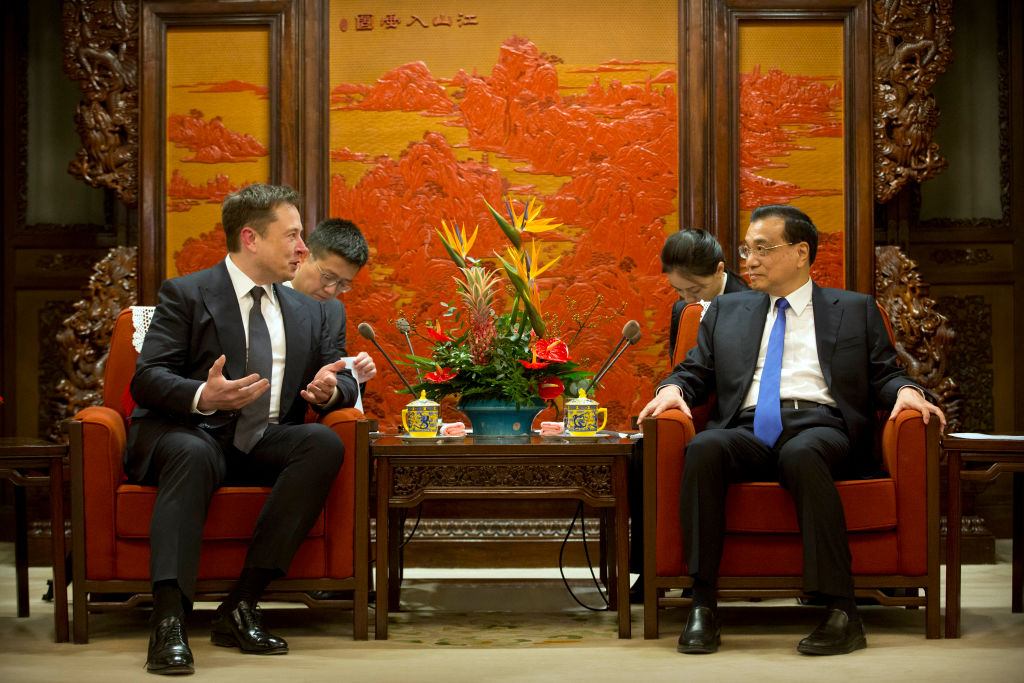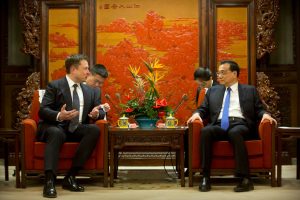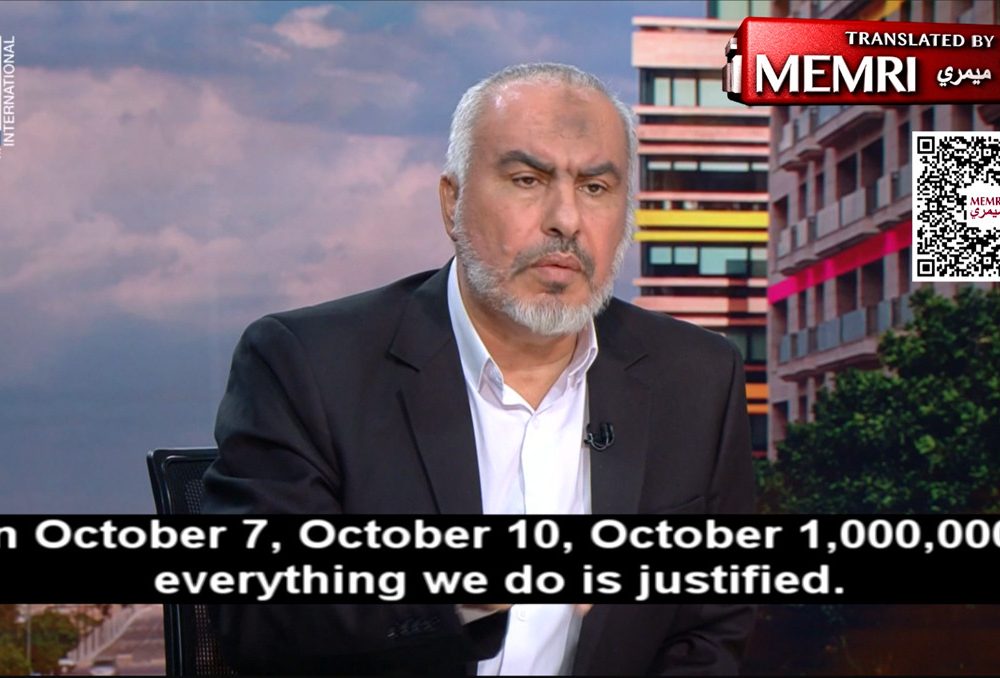Muslims “Have Nothing Whatsoever to do with Terrorism” Muslim Persecution of Christians, November 2015 by Raymond Ibrahim

- Muslims “have nothing whatsoever to do with terrorism.” — Hillary Clinton.
- “We have been forced to live under a climate of fear, this is not England. I grew up in in to a free decent country accepting British values and the British rule of law. … I think there is two laws, one for them and one for us.” — Nissar Hussain, a former Muslim living in West Yorkshire.
-
- “They wanted to kill us by burning us alive, but we managed to escape. We have lost everything.” — Ramni Das, 57, accused of witchcraft in Bangladesh.
- Iraq’s parliament passed a law that will force Christian children to become Muslim if their father converts to Islam or if their Christian mother marries a Muslim.
- In Pakistan, an 8-year-old girl, Sara Bibi, was beaten and locked in a school bathroom by her Muslim head teacher for using the same toilet as Muslims. She was then expelled from the school.
As Muslim jihadis, mobs and regimes terrorized Christians and others throughout the world of Islam, in the West, institutions — from governments to grade schools — empowered and praised Islam, often at the expense of Christians.
U.S. President Barack Obama described the idea of giving preference to persecuted Christian refugees as “shameful” — even though helping persecuted refugees is what America has always been doing and much of what it is about. “That’s not American. That’s not who we are. We don’t have religious tests to our compassion,” Obama admonished. Unfortunately for the president, statistics were soon released, indicating that “the current [refugee] system overwhelmingly favors Muslim refugees. Of the 2,184 Syrian refugees admitted to the United States so far, only 53 are Christians while 2,098 are Muslim.” So, although Christians are 10% of Syria’s population — and possibly the most persecuted group — only 2% of the refugees entering America are Christian.
Adding to the confusion, Republican presidential candidate Jeb Bush falsely claimed that Syrian President Bashar Assad “executes Christians.” In reality, not only have Christian minorities long been protected under the secular regime of Assad — himself a member of a religious minority — but many Christian refugees who fled the jihad in Iraq went to Assad’s Syria for sanctuary.
Accordingly, the head of the Syrian Catholic Church, Mar Ignace Youssif III Youan, in a November interview, accused Western governments of “perpetuat[ing] the endless conflict in Syria” and of having “betrayed the Christians of the East. We explained from the beginning that our situation was different from that of other nations in the region, they were not listened to. And now we mourn deaths over the past five years. … It’s a shame that the West has abandoned Christians to this situation.”
Less than a week after jihadis murdered 130 people in Paris, Hillary Clinton asserted that Muslims “have nothing whatsoever to do with terrorism.”
The same pro-Islamist, anti-Christian spirit floated through some Western schools. In the United Kingdom, pupils at Oldknow Academy were reportedly led in “anti-Christian chants” in assemblies that were “like a rally” with a “plainly divisive” attitude.” According to the Birmingham Mail, Asif Khan, a Muslim teacher, led pupils, shouting, “We don’t believe in Christmas, do we?” and “Jesus wasn’t born in Bethlehem, was he?” Children were also asked to shout: “Do we send Christmas cards? No!” and “Do we celebrate Christmas? No!” Khan denies the claims.
However, Ann Connor, an education adviser contracted to work for Department for Education who had earlier visited the school, said, “I found the school to be extraordinary. There was an element of fear.” A female staff member was said to be “frightened of Mr. Khan.” And a parent complained of the “increasing Islamic ethos in the school.”
In the United States, a seventh-grade teacher at Spring View Middle School in Huntington Beach, California, deviated from the district’s official curriculum and had students sing “This Is My Fight Song.” Lyrics from the song included, “Islam … Allah’s on the way. They will preach them loud tonight. Can you hear their voice this time? This is their fight song. Spread Islam now song. Prove that they’re right song.”
Parents only found out about the song after some students accidentally brought the pamphlet home. “I believe that by singing the song,” one of the angry parents said, “the children feel comfortable that maybe Allah is the only god and maybe that they should start following him. I’m not OK with that.” The school responded by sending an apology to parents and said it would continue looking into the incident.
Meanwhile, in the Islamic world, it was business as usual. November’s roundup of Muslim persecution of Christians around the world includes, but is not limited to, the following:
Muslim Slaughter of Christians and Savagery
Libya: Two Christians were killed by gunshots to their heads. The bodies of Wasfy Bakhit Gad Mikhail, 37, and his brother Fahmy, 27, were found on November 13 near Al Khums. On their bodies were black gloves with Islamic phrases. Like many other Christians killed in Libya — including the 21 who were slaughtered earlier this year by the Islamic State — the brothers were working as laborers and sent their earnings back home to support their families. “They were targeted and killed because they are Christians,” said Father Sulaiman Botros. “They kept the faith and refused to deny the Lord Jesus Christ. They are our church’s martyrs.”
Egypt: Marwa Ahmed, a 26-year-old former Muslim woman, was killed by her family for converting to Christianity and marrying a Christian. Three years ago she fled her hometown and moved to Alexandria with her new husband, where she gave birth to a boy and girl. But when her uncle and cousins learned that she was back visiting Taymiyya, they tracked her down and kidnapped her. According to the report, her uncle then forced her younger sister to “kill her to ‘punish’ her for her conversion.” Other reports say that the uncle killed Marwa himself.
Yet another Christian soldier was killed in his (Muslim majority) unit. Bishoy Nata’i Bushri Kamal, 21, was found dead at his military base in Cairo. The army told his family that he had committed suicide by hanging. However, the man’s uncle, Sami Bushri, said: “We completely reject this [claim that he had committed suicide].” The uncle added that Bishoy had recently gotten into a quarrel with a certain “Mustafa,” a fellow soldier. Injuries were found on Kamal’s abdomen, face and back — all of which indicate that he was tortured, then murdered. (See here for five more examples of Egyptian Christian soldiers found dead, followed by military claims of suicide or some other “accident,” and rejection of these claims by their families. They all point to conflicts with Muslim soldiers in the unit, including attempts to force the Christians to convert to Islam.
Yemen: Two Muslim converts to Christianity, in two separate incidents, were murdered because they left Islam. In Taiz, an al-Qaeda member shot a Christian man 15 to 20 times. The second Christian, shot once in his home, was killed either by another Islamic jihadi group or by members of his own family. A colleague of the second convert said that Muslims were harassing and threatening the man: “A lot of people didn’t like that he was a convert… I think it is because of his faith; there is no other reason.” Authorities, as usual, made no arrests.
United Kingdom: Former Muslim, Nissar Hussain, 49, was struck 13 times with a pickax and repeatedly punched and kicked by two hooded men, as he left his house in West Yorkshire. He suffered a shattered kneecap and a broken hand (video of attack here). According to the “apostate,” he became a target after he converted to Christianity in 1996 and his family appeared in a 2008 documentary exposing the mistreatment of Muslim converts. Since then, local Muslims drove his family from a previous home and have attacked them in the streets. “Our lives have been jeopardised and subjugated,” Hussain said. “We have been forced to live under a climate of fear, this is not England. I grew up in in [sic] to a free decent country accepting British values and the British rule of law. I think multiculturalism has failed, I think David Cameron’s Big Society has failed and I think there is two laws, one for them and one for us.”
Bangladesh: On November 18, three men attacked Fr. Piero Parolari, a 64-year-old missionary who had been working at St. Vincent Hospital since 1985. “They wanted to kill him,” said a colleague. “Three thugs were on the motorcycle. One shot him in the neck, but only grazed it, whilst another threw a knife (perhaps a Chinese knife) at the carotid artery. The cut did most of the damage. Fr. Parolari lost a lot of blood.” The priest fell and hit his head, had bruises on his eyes and body, and three broken ribs. He was reported suffering from respiratory problems, and fluid had to be drained from his lungs.
On November 5, four Catholic families narrowly escaped death when a group of Muslims burned down their homes on the accusation of witchcraft. A Muslim mob tried to lock them inside their houses before setting them on fire. “For more than a year, Muslim youths from a neighboring village accused us of practicing witchcraft and told us to leave the village. They abused us in public and threw bricks at our houses,” said Ramni Das, 57, who lost two homes in the attack. “They wanted to kill us by burning us alive, but we managed to escape. We have lost everything.”
Kenya: A man exposed as a secret Christian escaped his Muslim in-laws, who tried to stab him and seized his wife and children. Hassan Ali said that on the evening of November 11, Muslim neighbors and his in-laws, armed with knives, knocked on his door. He said that Muslims in the area may have become suspicious of his break from Islam since he had stopped attending the mosque. “I heard people talking outside my house and mentioning my name… I knew I was in trouble when they started questioning my wife about her faith. I then escaped through the window.” His wife’s relatives then seized the woman and their two children, a 7-year-old boy and a 4-year-old girl, and took them to her parents’ home.
According to a source, “The parents are telling Ali’s wife that the children should start going to a madrassa, an Islamic elementary school. … Ali’s wife is facing pressure from her parents to recant the Christian faith, and she is emotionally troubled.”
Ali said it will be “very difficult” to return to his house or see his family again. “What is worrying me at the moment is that communication between my wife and me has now been disconnected. I cannot reach her again. I know my wife and my two children, Hussein and Mariam, will be Islamized. This is making me to have sleepless nights.”
Central Nigeria: Hausa-Fulani Muslim herdsmen regularly commit atrocities against Christians that should be described as “ethnic/religious cleansing,” according to a report by the Nigeria Conflict Security Analysis Network (NCSAN). Despite the media narrative that Hausa violence is a result of environmental degradation and migration, the herdsmen are reportedly motivated by an Islamic agenda that seeks to cleanse the land of Christians no less than the more notorious jihadi organization, Boko Haram. Data from the report finds that in just a year-and-a-half (December 2013 to July 2015), the Muslim herdsmen slaughtered 1,484 Christians (532 men, 507 women, and 445 children), injured 2,388 Christians (1,069 men, 817 women, and 502 children), and burned or destroyed 171 churches, 314 houses and 39 shops and businesses of Christians.
The NCSAN report concludes that “for many people the atrocities committed by the Hausa-Fulani Muslim herdsmen can be, at best, described as ethnic cleansing, and at worst, as genocide. This is because, from the evidence presented, there is a deliberate and calculated infliction of physical destruction, targeted at particular religious [Christian] and ethnic groups. Such destruction is supported and driven by a religious supremacist ideology to ensure Islam dominates all aspects of life in Taraba State.”
Central African Republic (CAR): Thousands of people have been killed since 2013, when the Muslim militias known as “Seleka” seized power in the Christian-majority country. After months of killings, raping, and looting by Seleka, Christian militias known as “Anti-Balaka” emerged and were likely responsible for killing three Muslims. In retaliation, Muslims torched a church and slaughtered over 30 men and women, and torched their homes, in Christian-majority parts of Bangui (the CAR capital). According to a local witness, “The people have lost everything, and have nowhere to lay their head. They have become wanderers and vagabonds in their own country… [T]he objective continues to be to impoverish the Christians by burning all their homes and property… The threat of sudden death is on everyone’s mind, given what is going on in CAR far from the media cameras. We are defenceless, our very lives exposed, and only God can save us.”
Muslim Attacks on Christian Churches
Spain: On November 2, a group of Muslims stormed the Church of our Lady of Carmen, in the town of Rincon de la Victoria, and smashed wooden statues of the Virgin Mary and Jesus on the cross. A spokesman for the Diocese of Malaga said the attack was not representative of all Muslims and that the diocese was committed to maintaining “respect and fraternity between different religious groups.” The month before, a Moroccan man was arrested in the same town after trying to destroy another statue of the Virgin Mary while screaming “Allahu Akbar!”

On November 2, a group of Muslims stormed the Church of our Lady of Carmen, in the town of Rincon de la Victoria, Spain, and smashed wooden statues of the Virgin Mary and Jesus on the cross. The month before, a Moroccan man was arrested in the same town after trying to destroy another statue of the Virgin Mary while screaming “Allahu Akbar!” |
Iraq: The Islamic State reportedly blew up the convent belonging to the Dominican Sisters of St. Catherine of Siena on the morning of November 5. The destruction of the convent also caused considerable damage to adjacent buildings. According to the Assyrian Monitor for Human Rights and other media, this latest attack by the “caliphate” occurred in Tel Keppe — “Hill of Stones” — one of the largest historically Assyrian Christian towns in northern Iraq, about 8 miles from Mosul.
Egypt: On November 12, three gunmen opened fire on an Evangelical church by the Giza pyramids, near Cairo. Separately, in the city of Rashid, a retired Muslim judge is attempting to destroy a church. Judge Mohamed Mostafa Kamel Tirana and his two sons claim that they purchased the church building in 1990, and say that it was their family’s ancestral home. However, Tirana only registered the purchase of the building in 2008 — 18 years after the alleged purchase. The lawyer acting for the church leaders says the building has been registered as a church since 1948 in the city’s real estate authority, the Property Taxes office and the 1946 Cadastral map. “His purpose of taking over the church is demolishing its building and rebuild[ing] big shopping malls on its land,” said church leader Luka Asaad Awad. Last September 2, the judge managed to infiltrate the church and tried to demolish the building from inside. “We beg President Abdel Fatah El-Sisi to intervene and protect the church and stop the demolition of it,” said the church leader.
Kenya: Muslims burned down two Christian churches, Faith Victory Church and Holistic Church, on the outskirts of Tiribe town. Prior to these arson attacks, church leaders received threatening messages from Muslims, including calls to “stop converting our people to Christianity, and if not you will soon regret changing our people to Christianity.” Christians have been since worshiping in tents, some of which have been flooded by heavy rains — five people were swept away by a downpour.
Indonesia: More than 1,000 Christian churches have been shut down in Muslim-majority Indonesia since 2006, when the “religious harmony” law was passed, according to a report. The law requires minority religious groups to secure 60 signatures of local residents of another faith, and a written recommendation from local authorities before obtaining permits to build houses of worship, which, as Christian leaders indicate, is often impossible.
Dhimmitude
Iraq: Parliament passed a law that will force Christian children to become Muslim if their father converts to Islam or if their Christian mother marries a Muslim. Leaders of the Assyrian Christians, Yazidis, Mandeans, Kakai and Bahai vigorously fought the law and their representatives walked out of the parliament session in protest after it was passed. They had requested adding: “Minors will keep their current religion until the completion of 18 years of age, then they have the right to choose their religion” — but the clause was rejected.
Iran: Fourteen Christians, among them converts from Islam, were arrested after agents from the Ministry of Intelligence raided a private house-church meeting. Most of the group had previously been members of the Emmanuel Protestant Church in Tehran, which Iranian authorities had forced to close in 2012. According to Christian Solidarity, “We are extremely concerned at the arrests of these 14 Christians and the fact that their whereabouts remain unknown, which gives rise to concerns regarding their wellbeing. These people had merely gathered peacefully and had not partaken in any illegal activities. It is unacceptable that the Iranian authorities continue to harass the Christian community without cause.”
Uzbekistan: On Sunday, November 8 in Tashkent, the nation’s capital, twelve Protestant Christians holding a worship meeting in a private home were detained, and some beaten, after eight plain-clothes anti-terrorism officers stormed their morning meeting. A large quantity of Christian literature — approximately 100 books — was also confiscated. Two Christians were handcuffed and another was “hit and kicked” in the head and in the abdomen by an armed officer. The Christians were then taken to the police station where they were held for nine hours. During that time, they were forbidden to use the toilet and denied water. Some of the Christians detained had infant children with them and were not allowed to feed them until they had written statements denouncing Sarvar Zhuliyev, in whose home they had met. Christian parents were forced to write statements declaring that Sarvar Zhuliyev had “taught them the faith of Jesus Christ.” Some of the children were also interrogated by police and forced to write statements. Problems began when the head teacher of a school in the capital’s Yashnobod District told police that two pupils were speaking about their Christian faith with other pupils.
Turkey: A survey revealed that “Eighty percent of minorities in Turkey say they cannot express themselves openly on social media, while 35 percent said they are subject to hate speech on the same platform.” The survey was conducted among 746 Turkish citizens who are members of the Greek, Armenian, Syriac, and Jewish communities. Over one-third of respondents also said they were subject to defamation, humiliation, obscenity or threats due to their minority identity on social media.
Muslim ‘Sharia Police’ Patrol the Streets of Germany
A German court has allowed sharia law police to patrol the streets of Wuppertal in order to ensure that ALL people adhere to Muslim religious law.
Considering the large number of Muslim immigrants in Germany, this is not surprising. The immigrants have demanded the implementation of sharia law.
What this means is no consumption of alcohol, no music, modest attire for women and strict adherence to the laws of Mohammed – just like in Iran and Saudi Arabia.
Perhaps this should be taken as a warning to other countries who are bringing in scores of Muslim immigrants.
Do you want sharia police patrolling the streets of your city, or anywhere in your country?
Muslim Reform Movement by M. Zuhdi Jasser and Raheel Raza et al

-
We reject interpretations of Islam that call for any violence, social injustice and politicized Islam. We invite our fellow Muslims and neighbors to join us.
-
-
We reject bigotry, oppression and violence against all people based on any prejudice, including ethnicity, gender, language, belief, religion, sexual orientation and gender expression.
-
We are for secular governance, democracy and liberty.
-
Every individual has the right to publicly express criticism of Islam. Ideas do not have rights. Human beings have rights.
-
We stand for peace, human rights and secular governance. Please stand with us!
Preamble
We are Muslims who live in the 21st century. We stand for a respectful, merciful and inclusive interpretation of Islam. We are in a battle for the soul of Islam, and an Islamic renewal must defeat the ideology of Islamism, or politicized Islam, which seeks to create Islamic states, as well as an Islamic caliphate. We seek to reclaim the progressive spirit with which Islam was born in the 7th century to fast forward it into the 21st century. We support the Universal Declaration of Human Rights, which was adopted by United Nations member states in 1948.
We reject interpretations of Islam that call for any violence, social injustice and politicized Islam. Facing the threat of terrorism, intolerance, and social injustice in the name of Islam, we have reflected on how we can transform our communities based on three principles: peace, human rights and secular governance. We are announcing today the formation of an international initiative: the Muslim Reform Movement.
We have courageous reformers from around the world who will outline our Declaration for Muslim Reform, a living document that we will continue to enhance as our journey continues. We invite our fellow Muslims and neighbors to join us.

DECLARATION
A. Peace: National Security, Counterterrorism and Foreign Policy
1. We stand for universal peace, love and compassion. We reject violent jihad. We believe we must target the ideology of violent Islamist extremism in order to liberate individuals from the scourge of oppression and terrorism both in Muslim-majority societies and the West.
2. We stand for the protection of all people of all faiths and non-faith who seek freedom from dictatorships, theocracies and Islamist extremists.
3. We reject bigotry, oppression and violence against all people based on any prejudice, including ethnicity, gender, language, belief, religion, sexual orientation and gender expression.
B. Human Rights: Women’s Rights and Minority Rights
1. We stand for human rights and justice. We support equal rights and dignity for all people, including minorities. We support the United Nations Declaration of Human Rights.
2. We reject tribalism, castes, monarchies and patriarchies and consider all people equal with no birth rights other than human rights. All human beings are born free and equal in dignity and rights. Muslims don’t have an exclusive right to “heaven.”
3. We support equal rights for women, including equal rights to inheritance, witness, work, mobility, personal law, education, and employment. Men and women have equal rights in mosques, boards, leadership and all spheres of society. We reject sexism and misogyny.
C. Secular Governance: Freedom of Speech and Religion
1. We are for secular governance, democracy and liberty. We are against political movements in the name of religion. We separate mosque and state. We are loyal to the nations in which we live. We reject the idea of the Islamic state. There is no need for an Islamic caliphate. We oppose institutionalized sharia. Sharia is manmade.
2. We believe in life, joy, free speech and the beauty all around us. Every individual has the right to publicly express criticism of Islam. Ideas do not have rights. Human beings have rights. We reject blasphemy laws. They are a cover for the restriction of freedom of speech and religion. We affirm every individual’s right to participate equally in ijtihad, or critical thinking, and we seek a revival of ijtihad.
3. We believe in freedom of religion and the right of all people to express and practice their faith, or non-faith, without threat of intimidation, persecution, discrimination or violence. Apostasy is not a crime. Our ummah–our community–is not just Muslims, but all of humanity.
We stand for peace, human rights and secular governance. Please stand with us!
Affirmed this Fourth Day of December, Two-Thousand and Fifteen By the founding authors who are signatories below
#MuslimReform
Twitter: @TheMuslimReform
Facebook: Muslim Reform Movement
Email: MuslimReformMovement@gmail.com Website: www.MuslimReformMovement.org
Please sign our declaration on Change.org!
Founding Signatories
Tahir Gora,
Author, Journalist, Activist, Toronto, Canada
Tawfik Hamid
Islamic Thinker and Reformer, Oakton, VA, USA
Usama Hasan
Imam, Quilliam Foundation, London, UK
Arif Humayun
Senior Fellow, American Islamic Forum for Democracy, Portland, OR, USA
Farahnaz Ispahani
Author, Former Member of Parliament, Pakistan, Washington, D.C., USA
M. Zuhdi Jasser, M.D.
President, American Islamic Forum for Democracy, Phoenix, AZ USA
Mohamad Jebara
Imam, Cordova Center, Ottawa, Canada
Naser Khader
Member, Danish Parliament, Muslim democracy activist
Copenhagen, Denmark
Courtney Lonergan
Community Outreach Director, American Islamic Forum for Democracy, Professional facilitator
Hasan Mahmud
Resident expert in sharia, Muslims Facing Tomorrow, Toronto, Canada
Asra Nomani
Journalist, Author, Morgantown, WV, USA
Raheel Raza
Founder, Muslims Facing Tomorrow, Toronto, Canada
Sohail Raza
Vice President, Coalition of Progressive Canadian Muslim Organizations
Salma Siddiqui
President, Coalition of Progressive Canadian Muslim Organizations, Toronto, Canada
Muslim Officials Harass US Congressmen on Temple Mount

“When there is a lack of resolve in protecting religious freedoms, it emboldens those who have no compunction about suppressing it,” said Rep. Trent Franks (R-AZ).
Men wearing the insignia of the Jordanian Waqf(Islamic trust) stalked and shouted at a delegation of US Congressmen visiting the Temple Mount, claiming that the Americans were not modestly dressed and accusing them of referring to the Jewish history of the Temple Mount.
“We walked up there, and were almost immediately approached by several men who started shouting,” Rep. Keith Rothfus (R-PA) told the Jerusalem Post. “We were tracked the entire time we were there and found these individuals surprisingly intolerant and belligerent.”
The trouble began when Muslim men accosted Elizabeth Jenkins, the wife of Rep. Evan Jenkins (R-WV), and said that she was not dressed appropriately, despite the fact that she was wearing long sleeves and a calf-length skirt. Police were required to disperse the tormenters.
The group continued on their tour, only for their guide to be interrupted by a man demanding to know if there would be any discussion of the Temple and insisting that the site be called the Dome of the Rock rather than the Temple Mount. Men wearing the insignia of the Islamic Waqf, which administers the site, also attempted to confiscate the guide’s maps and diagrams.
“When there is a lack of resolve in protecting religious freedoms, it emboldens those who have no compunction about suppressing it,” said Rep. Trent Franks (R-AZ), co-chair of the Israel Allies Foundation’s congressional caucus, which organized the trip.

An injured Christian tourist escorted by Israeli police after being attacked. (Rotter.net)
“There was an effort to completely suppress not only any expression of religious conviction, but any articulation of historical reality,” he added, saying the incident “shows the fundamental dynamics of the greater contention throughout the Middle East.”
The Temple Mount is the holiest site in Judaism.
Dozens of Palestinian religious leaders, under the initiative of former Grand Mufti of Jerusalem Sheikh Ekrima Sa’id Sabri, issued a declaration last week stating that the Temple Mount is only holy to Muslims and that it is a “desecration” for Jews to enter the site. AChristian tourist from France was assaulted by a mob on August 4 for waving an Israeli flag. There were also riots attacking Jews on Tisha b’Av, the day of mourning for the destruction of both Temples.
By Sara Abramowicz, United with Israel
Muslim Invasion of Europe by Guy Millière

-
The Syrian government sells passports and birth certificates at affordable prices. Many migrants have no passport, no ID, and refuse to give fingerprints.
-
Because Islam is the heart of the culture of people formerly colonized, Europeans rejected criticism of Islam, saying it would blend smoothly into a multicultural Europe. They did not demand the assimilation of the Muslims who came to live in Europe. Much of the time, Muslims are not assimilated — and often show signs of not wanting to assimilate.
-
Any criticism of Islam in Europe is treated as a form of racism, and “Islamophobia” is considered a crime or a sign of mental illness.
-
European people still have the right to vote, but are deprived of most of their power: all important political decisions in Europe are made behind closed doors by technocrats and professional politicians in Brussels or Strasbourg.
-
Europe has renounced force, so to many, it appears weak, vulnerable and easily able to be overpowered.
-
The sudden arrival of hundreds of thousands more Muslims most likely prompts Europeans to think that the nightmare will get worse; they see, powerlessly, that their leaders speak and act as if they have no awareness of what is happening.
-
Central European leaders and people, who have already lived under authoritarian rule, seem to be thinking that entering the European Union was a huge mistake. They came to what was then called the “free world.” They do not seem willing to be subjected again to coercive decisions made by outsiders.
-
Illegal Muslim migrants will live on social benefits until the bankruptcy of welfare states.
-
In all 28 countries of the European Union, birth rates are low and the population is aging. People under thirty account for only 16% of the population, or 80 million people. In the 22 Arab countries, plus Turkey and Iran, people under thirty account for 70% of the population, or 350 million people.
The flow of illegal migrants does not stop. They land on the Greek islands along the Turkish coast. They still try to get into Hungary, despite a razor wire fence and mobilized army. Their destination is Germany or Scandinavia, sometimes France or the UK. Some of them still arrive from Libya. Since the beginning of January, more than 620,000 have arrived by sea alone. There will undoubtedly be many more: a leaked secret document estimates that by the end of December, there might be 1.5 million.
Journalists in Western Europe continue to depict them as “refugees” fleeing war in Syria. The description is false. According to statistics released by the European Union, only twenty-five percent of them come from Syria; the true number is probably lower. The Syrian government sells passports and birth certificates at affordable prices. The vast majority of migrants come from other countries: Iraq, Afghanistan, Pakistan, Eritrea, Somalia, and Nigeria.
Many do not seem to have left in a hurry. Many bring new high-end smartphones and large sums of cash, ten or twenty thousand euros, sometimes more. Many have no passports, no ID, and refuse to give fingerprints.
Whenever people flee to survive, the men come with whole families: women, children, elders. Here, instead, more than 75% of those who arrive are men under 50; few are women, children or elders.
As Christians are now the main targets of Islamists (the Jews fled or were forced out decades ago), the people escaping the war in Syria should be largely composed of Christians. But Christians are a small minority among those who arrive, and they often hide that they are Christians.
Those who enter Europe are almost all Muslims, and behave as some Muslims often do in the Muslim world: they harass Christians and attack women. In reception centers, harassing Christians and attacking women are workaday incidents. European women and girls who live near reception centers are advised to take care and cover up. Rapes, assaults, stabbings and other crimes are on the rise.
Western European political leaders could tell the truth and act accordingly. They do not. They talk of “solidarity,” “humanitarian duty,” “compassion.” From the beginning, Chancellor Angela Merkel of Germany said that illegal migrants were welcome: she seemed to change her mind for a moment, but quickly slid back. In France, President François Hollande says the same things as Angela Merkel.
After the heartbreaking image of a dead child being carried on a Turkish beach was published, thousands of Germans and French initially spoke the same way as their leaders. Their enthusiasm seems to have faded fast.
The people of Central Europe were not enthusiastic from the beginning. Their leaders seem to share the feelings of their populations. None spoke as explicitly as Viktor Orbán, Prime Minister of Hungary. He said out loud what many of his countrymen seemed to think. He spoke of “invasion” and asked if there were another word to describe the massive and often brutal entry into a country of people who have not been invited to do so. He added that a country has theright to decide who is allowed to enter its territory and to guard its borders. He stressed that those who enter Europe are from a “different culture,” and suggested that Islam might not be compatible with European Judeo-Christian values.
Western European political leaders harshly condemned his remarks and the attitude of Central Europe in general. They decided to take a hard line approach, including: forcing recalcitrant countries to welcome immigrants, setting up mandatory quotas that define how many immigrants each EU country must receive, and threatening those countries that declined to obey. Martin Schulz, President of the European Parliament, said that Europe was built in a spirit of “burden sharing,” and that EU breakup was a risk that could not be excluded.
An acute division, in fact, is emerging between the leaders of Western Europe and the leaders of Central Europe. Another division is growing between the populations of Western Europe and their leaders.
Those who rebuilt Europe after World War II thought that an enlightened elite (themselves) could make a clean sweep of the past and build a dream society where peace and perpetual harmony would reign.
Because they thought democracy had brought Hitler to power, they decided to restrict democracy.[1] Because they thought nationalism was the cause of the war, they decreed that nationalism was harmful and that the cultural identities in Europe had to disappear and be replaced by a new “European identity” that they would shape.[2]
Because Europe had a colonialist past and Europeans had believed in the superiority of their cultures, they claimed that Europe should redeem its guilt and affirm that all cultures were equal. And because Islam was at the heart of the culture of people formerly colonized, the Europeans rejected all criticism of Islam, and said that it would blend smoothly into amulticultural Europe. They did not demand the assimilation of Muslims who came to live in Europe in increasing number.
Because the Europeans thought poverty had led to the rise of Nazism, they built welfare states that were supposed to eliminate poverty forever.
Because two world wars had started in Europe, the Europeans decreed that from now on, Europe would renounce the use of force, and solve all conflicts through diplomacy and appeasement.[3]
We now see the results.
European people still have the right to vote, but are deprived of most of their power: all important political decisions in Europe are made behind closed doors, by technocrats and professional politicians, in Brussels or Strasbourg.
Cultural identities in Europe have been eroded to such a point that saying that Europe is based on Judeo-Christian values has become controversial.
Any criticism of Islam in Europe is treated as a form of racism, and “Islamophobia” is considered a crime or a sign of mental illness.
Islam has not melted into a smooth multiculturalism; it is creating increasingly distressing problems that are almost never brought to light.
Muslim criminality across Europe is high. Consequently, the percentage of Muslims in prisonsin Europe is high. In France, which has the largest Muslim population in Europe, the prison population is 70% Muslim. Many European prisons have become recruitment centers for future jihadis.
Muslim riots may occur for any reason : police upholding the law, a Soccer League celebrationor in support of a cause.
Welfare states have created a government-dependent class in Europe of many people who live permanently on social benefits. These people are often Muslim. Much of the time, they are not assimilated – and often show signs of not wanting to assimilate. Many reside in virtually autonomous, so-called no-go zones (e.g. France, the UK, and Germany).
Europe has renounced force; to many, it therefore appears weak, vulnerable and easily able to be overpowered.
Populations of Western Europe increasingly think that the dream society that had been promised has turned into a nightmare. The sudden and often brutal arrival of hundreds of thousands more Muslims most likely prompts Europeans to think the nightmare will get worse. They see, powerlessly, that their leaders speak and act as if they have no awareness of what is happening.
Central European leaders and their people, who have directly experienced authoritarian rule, seem to be thinking that entering the European Union was a huge mistake. When the Soviet Union collapsed, they became members of the EU to join what was called then the “free world.” They do not seem willing to be subjected again to coercive decisions made by outsiders.
After living under the Soviet yoke, they preserved their desire for freedom and self-government, and evidently will not now agree to give them up. They know what submission to Islam could mean. Bulgaria and Romania were occupied by the Ottoman Empire until 1878. Hungary was under the boot of Ottoman rule for more than a hundred and fifty years (1541-1699).
Polls show that a majority of Muslims living in Europe want the application of sharia law and clearly reject any idea of assimilation.
Hundreds of thousands of Muslims living in Europe have joined fundamentalist Islamic organizations. Thousands have joined jihadist movements and are now fighting in Syria or Yemen. Many have returned and are ready to act against Europe.
Illegal Muslim migrants are likely to join the Muslims already living in Europe; and they will remain Muslim. They will live on social benefits until the bankruptcy of welfare states. They will reside in the “no-go zones,” and the “no-go zones” will continue to grow. Their occupants come from countries where Christians and women are mistreated; in Europe, they are already mistreating Christians and women.
They come from countries where Western civilization is despised and where hatred of Jews is inescapable — and this remains so among Muslims already living in Europe. For more than two decades, almost all assaults against Jews in Europe were committed by Muslims.
Many of those who arrive, according to European intelligence sources, are already radicalized.
A project to overwhelm Europe by a huge wave of migration was already described by the Islamic State in documents discovered this February. It is hard to rule out that the Islamic State plays a role in what is happening. Turkish authorities are ignoring the massive departurestaking place from their coast. If they really wanted the current process to stop, they could stop it. That is clearly not what they do. The Islamic State could not survive without Turkish help. Daily flights on Turkish Airlines bring illegal migrants to Istanbul; they continue unhindered to Europe. The Russians, in their military intervention in Syria, similarly does not seem interested in stopping what is occurring.
Angela Merkel said in Strasbourg, on October 7, that migrants entering Europe today are attracted to Europe, for the reasons Europeans migrants who arrived in America a century ago were attracted to America: to “realize a dream,” presumably of opportunity.
In all 28 countries of the European Union, birth rates are low and the population is aging. People under thirty account for only 16% of the population, or 80 million people. In the 22 Arab countries, plus Turkey and Iran, people under thirty account for 70% of the population, or 350 million people.
Jews are fleeing Europe in increasing numbers. “Native” Europeans are starting to flee as well.
In 1972, in his book “The Camp of the Saints,” French writer Jean Raspail described flooding Europe with Muslim migrants crossing the Mediterranean. At the time, the book was a work of fiction. Today, it is reality.

Out with the old, in with the new… European officials estimate that 1.5 million migrants, mostly Muslims, will arrive in the European Union this year. Jews are fleeing Europe in increasing numbers. “Native” Europeans are starting to flee as well.
|






























